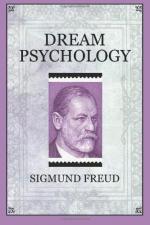It is not uncommon that out of some long, complicated and intricate dream one specially lucid part stands out containing unmistakably the realization of a desire, but bound up with much unintelligible matter. On more frequently analyzing the seemingly more transparent dreams of adults, it is astonishing to discover that these are rarely as simple as the dreams of children, and that they cover another meaning beyond that of the realization of a wish.
It would certainly be a simple and convenient solution of the riddle if the work of analysis made it at all possible for us to trace the meaningless and intricate dreams of adults back to the infantile type, to the realization of some intensely experienced desire of the day. But there is no warrant for such an expectation. Their dreams are generally full of the most indifferent and bizarre matter, and no trace of the realization of the wish is to be found in their content.
Before leaving these infantile dreams, which are obviously unrealized desires, we must not fail to mention another chief characteristic of dreams, one that has been long noticed, and one which stands out most clearly in this class. I can replace any of these dreams by a phrase expressing a desire. If the sea trip had only lasted longer; if I were only washed and dressed; if I had only been allowed to keep the cherries instead of giving them to my uncle. But the dream gives something more than the choice, for here the desire is already realized; its realization is real and actual. The dream presentations consist chiefly, if not wholly, of scenes and mainly of visual sense images. Hence a kind of transformation is not entirely absent in this class of dreams, and this may be fairly designated as the dream work. An idea merely existing in the region of possibility is replaced by a vision of its accomplishment.
II
THE DREAM MECHANISM
We are compelled to assume that such transformation of scene has also taken place in intricate dreams, though we do not know whether it has encountered any possible desire. The dream instanced at the commencement, which we analyzed somewhat thoroughly, did give us occasion in two places to suspect something of the kind. Analysis brought out that my wife was occupied with others at table, and that I did not like it; in the dream itself exactly the opposite occurs, for the person who replaces my wife gives me her undivided attention. But can one wish for anything pleasanter after a disagreeable incident than that the exact contrary should have occurred, just as the dream has it? The stinging thought in the analysis, that I have never had anything for nothing, is similarly connected with the woman’s remark in the dream: “You have always had such beautiful eyes.” Some portion of the opposition between the latent and manifest content of the dream must be therefore derived from the realization of a wish.




